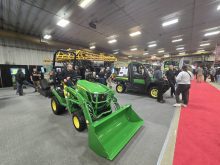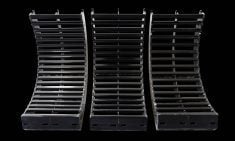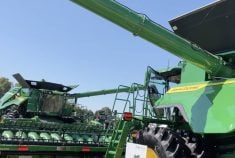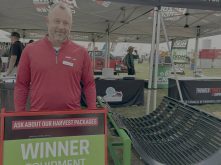John Deere is allowing U.S. farmers to repair their own tractors.
In early January, the company signed a memorandum of understanding with the American Farm Bureau Federation that many say signals what could become an industry-wide trend that spills over the border.
“I think this is very positive news,” says Bill Campbell, president of Keystone Agricultural Producers. “John Deere is a leader in this particular industry. Hopefully other equipment or providers will follow that lead.”
Read Also

Tie vote derails canola tariff compensation resolution at MCGA
Manitoba Canola Growers Association members were split on whether to push Ottawa for compensation for losses due to Chinese tariffs.
Why it matters: Simple repairs can take too long when a farmer is waiting in the field for a technician.
The right to repair movement began in the early 2000s with the rise of proprietary software and firmware in consumer electronics, which made it difficult for consumers and independent repair shops to fix devices. In recent years, the movement spread to other industries, including agriculture, with farmers advocating for the right to access repair information, parts and services for their equipment.
Campbell says he’s heard numerous stories where right-to-repair has been an issue.
“There are certain times of the year, like seeding and harvest, when agriculture relies heavily on its equipment,” he says. “When you have a breakdown, the ability to access repair and knowledge is paramount.”
Campbell, who farms near Minto, says farmers have always had a do-it-yourself ethic largely based on necessity.
“There were a lot of very intelligent farmers who knew how to repair engines and were brought up with the repair techniques,” he says. However, as equipment becomes more complex and more computer-driven, the ability to make those on-the-fly repairs has been taken out of their hands.
“When we have an issue with a piece of equipment, the computers are the first thing to come out of the technician’s truck, not the wrenches,” says Campbell. “If you don’t have access to or the ability to utilize that diagnostic equipment, your right to repair is inhibited.”
These stories are common on prairie farms. A 2021 Alberta Farmer Express article described that very thing happening to Alberta farmer Cole Siegle. He was harvesting canola on his farm near Fairview, Alta., when an error code appeared on his combine’s monitor. He called the dealership and waited hours for a technician, only to determine the onboard computer needed a reset.
“If I could have done that myself or been able to use a mechanic or a technician who’s closer to me, our downtime could have gone from six hours to two hours,” he said.
The memorandum between Deere and the farm bureau sets parameters and creates a mechanism to address farmers’ concerns. It also makes diagnostic and repair codes, as well as operator, parts and service manuals and product guides, available to farmers.
“This agreement reaffirms the longstanding commitment Deere has made to ensure our customers have the diagnostic tools and information they need to make many repairs to their machines,” said John Deere senior vice-president David Gilmore, in the Jan. 9 press release.
One of the sticking points with manufacturers and dealers of agricultural equipment is that many people conflate the notions of “repair” and “modify.” This MOU addresses that.
It includes provisions that assure safety and environmental protocols are not compromised through modification. It also protects the intellectual property of the manufacturer from “illegal infringement through the modification of embedded software.”
In February last year, a Canadian private members’ right-to-repair bill was introduced by NDP MLA Jim Malloway. If passed, Bill 241 would amend the Farm Machinery Act to compel farm equipment manufacturers to provide “the most recent version” of manuals, parts, software and other tools to diagnose, maintain or repair their farm machinery and to reset the electronic security functions of those disabled during maintenance or repair.
Campbell says he’s hearing the bill has support from all parties.
“I’m encouraged by the direction in which things are going.”
















